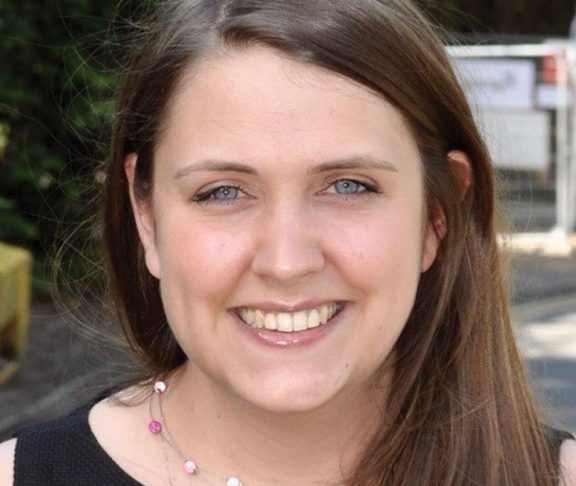Dr Rachel Cross worked on the 2018 space mission to Mars and she works to inspire girls in the classroom. She is a research associate at Aberystwyth University, and she loves being a physicist.
What’s great about working in science?
The job can be so much fun. As part of our work with the UK and European Space Agencies we did some geology field work in a mine in Yorkshire using Mars analogue instruments. The press found out about it and ran a story about how scientists were ‘looking for Martians in Yorkshire‘. The story even featured on the BBC television programme, Have I Got News For You, which gave us all a giggle.
Why does STEM need women working in science?
Well, why halve the talent pool that you recruit from? You can’t restrict your company to hiring from just one demographic. Not all physicists look like Einstein. People say to me that I do not look like a physicist and I am never sure if that is a compliment or an insult…
We need to encourage more girls to study physics at A Level and university and come into our industry. This means changing perceptions and talking about the exciting work you get to do. I travel the world and I am developing new calibration methods for the Panoramic Camera instrument on the European Space Agency/Roscomos-led 2020 mission to Mars. I have touched something that is going to Mars! That is pretty amazing.
There are a lot of men in STEM. How do we get more women involved?
Regardless of your gender you need to feel comfortable at work. Yes, STEM professions are currently male-dominated but that won’t change until we can convince more girls to study related subjects. There is a perception that our industries are not family-friendly but that is not something I have experienced. There are some great employers with excellent work/life packages that encourage a flexible approach to work for women and men. I often work from home.
We are seeing more women enter STEM professions and this is changing the culture and environment. When I came back to work at the university in 2010, there was only one other woman in a similar role, now there are four and one has become a professor.
Are there cultural barriers that need to be broken down for women working in science to reach their potential?
Generally, I have been lucky because I am a very driven person and have tended to work in supportive environments. You do still see sexism in the workplace but that is gradually disappearing as younger people come into the industry.
I turned down a job once when the interviewer asked me if I was planning to have babies within three years even though they knew it was illegal to ask the question. You also see comments being made when attractive women are speaking at conferences that would never be said about men. There can be sexism but it tends not to be malicious. You can be feminine in the workplace and be successful, but it does help if you can stand up for yourself.
Why is it so important to encourage a positive working environment for women in STEM?
When the Nobel prize winner Sir Tim Hunt was caught up in a media storm over claims he said scientists would benefit from single-sex labs I had to laugh. There was even a Twitter hashtag: #distractinglysexy. I’m not sure most women are a distraction in lab coats and goggles…
The serious point, is the working environment must suit everyone if you are to benefit from the sharing of different ideas. On the ExoMars project I am working with a wide range of researchers from many different disciplines such as geologists and astrobiologists. I am learning about materials from them and they are learning about physics from me. You also have to be careful about unconscious bias and surrounding yourself with people like you or who you know. You need to create an environment where both genders and all ages and cultures can work well together.
What would your advice be to young women thinking about working in science?
You must persevere, because although it can involve long hours, the opportunities and experiences are fantastic. You need to enjoy your job. I love being a physicist; investigating new things, being my own boss in the lab and teaching. There are also great opportunities to travel.
Working in academia can be more like a vocation. I do find it hard to switch off when I get home because that’s when I get a lot of my good ideas for research. I have worked in industry too, so women need to be aware there are different roles in STEM.
There is a career for everyone, whatever you are interested in. You do not have to go to university or be the top of your class to find a rewarding career working in science or STEM.

